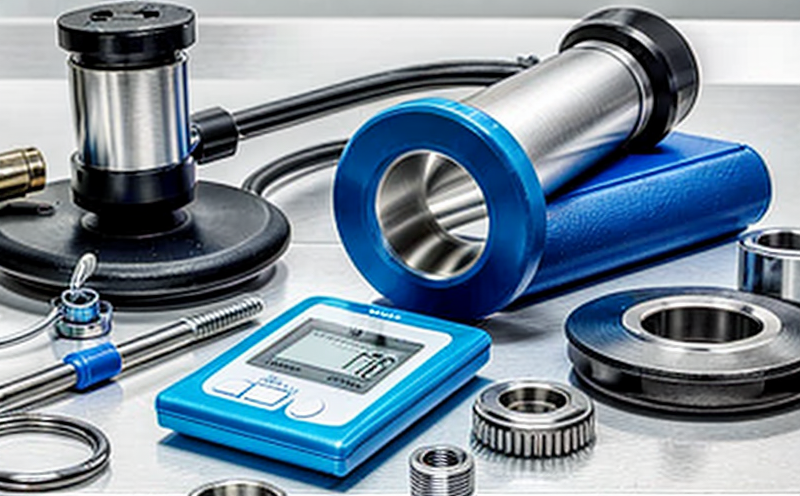Testing medical devices for compliance with material safety regulations
Ensuring Medical Device Safety Why Testing for Compliance with Material Regulations Matters
In the medical device industry, compliance with regulatory standards is of paramount importance. The introduction of new medical devices to the market can be a complex and time-consuming process, especially when it comes to ensuring their safety and efficacy. One critical aspect of this process is testing medical devices for compliance with material safety regulations. This laboratory service is provided by Eurolab, a trusted expert in the field.
As a medical device manufacturer, you understand the importance of adhering to regulatory standards set by organizations such as the FDA (U.S. Food and Drug Administration), EU MDR (Medical Device Regulation), and ISO These regulations are designed to protect public health by ensuring that medical devices meet certain safety and performance requirements.
In this article, we will delve into the world of testing medical devices for compliance with material safety regulations, exploring its significance, benefits, and how Eurolab can support your business in achieving regulatory compliance.
What is Testing Medical Devices for Compliance with Material Safety Regulations?
Testing medical devices for compliance with material safety regulations involves a series of laboratory tests designed to evaluate the devices material properties, such as biocompatibility, toxicity, and durability. The primary goal of these tests is to determine whether the device meets the required standards for safety and performance.
At Eurolab, we specialize in providing comprehensive testing services that cater to various medical devices, including implants, surgical instruments, and diagnostic equipment. Our expert team conducts a range of tests, including
Biocompatibility testing (e.g., cytotoxicity, hemolysis)
Toxicology testing (e.g., acute toxicity, genotoxicity)
Material properties testing (e.g., tensile strength, hardness)
Chemical testing (e.g., residue, extractables)
The Advantages of Using Testing Medical Devices for Compliance with Material Safety Regulations
Incorporating testing medical devices for compliance with material safety regulations into your quality control process offers numerous benefits. Some of the key advantages include
Ensures Regulatory Compliance
Conducting regular testing and validation activities is crucial for maintaining regulatory compliance. By working with Eurolab, you can ensure that your medical device meets the required standards for safety and performance, reducing the risk of non-compliance.
Reduces the likelihood of costly recalls or market withdrawals
Protects your brand reputation and maintains customer trust
Enhances Product Safety
Testing medical devices for compliance with material safety regulations is an essential step in ensuring product safety. By identifying potential issues early on, you can take corrective action to prevent harm to patients.
Reduces the risk of adverse events or device-related injuries
Protects patients and enhances their trust in your products
Streamlines Quality Control
Integrating testing into your quality control process helps streamline activities, reducing costs and improving efficiency. By leveraging Eurolabs expertise, you can focus on what matters most delivering high-quality medical devices.
Saves time and resources by outsourcing laboratory services
Enhances your internal teams productivity and effectiveness
Supports Continuous Improvement
Regular testing and validation activities enable you to identify areas for improvement, enabling you to refine your products and processes.
Encourages a culture of continuous improvement within your organization
Fosters innovation and drives business growth
QA Frequently Asked Questions About Testing Medical Devices for Compliance with Material Safety Regulations
We understand that you may have questions about our testing services. Here are some frequently asked questions to help address your concerns
What types of medical devices do you test?
Eurolab specializes in testing a wide range of medical devices, including implants, surgical instruments, and diagnostic equipment.
Our expert team has extensive experience working with various device types
We provide customized testing solutions tailored to your specific needs
How long does the testing process take?
The duration of our testing services varies depending on the type of test and the complexity of the device. Typically, our testing programs can be completed within 6-12 weeks.
Our team will work closely with you to establish a customized testing plan
We provide regular updates on your testing progress
What are the benefits of outsourcing laboratory services?
Outsourcing laboratory services like Eurolabs offers numerous advantages, including cost savings, improved efficiency, and enhanced expertise.
You can focus on your core business while leaving laboratory activities to our experts
We provide access to state-of-the-art equipment and facilities
Conclusion Partner with Eurolab for Expert Testing Services
In conclusion, testing medical devices for compliance with material safety regulations is a critical aspect of the medical device industry. By partnering with Eurolab, you can ensure that your products meet regulatory standards, ensuring public health and safety.
Dont risk non-compliance or compromise product safety choose Eurolabs comprehensive testing services today. Contact us to learn more about our offerings and how we can support your business in achieving regulatory compliance.




